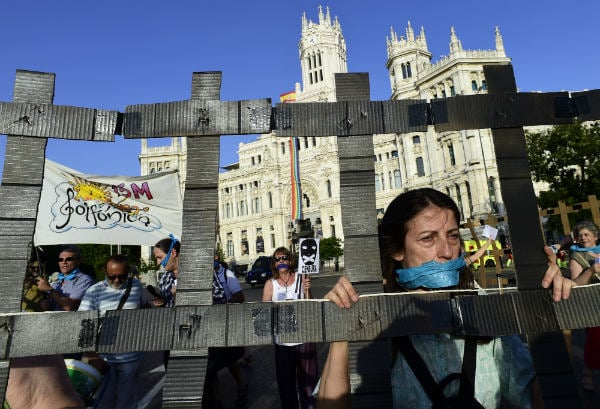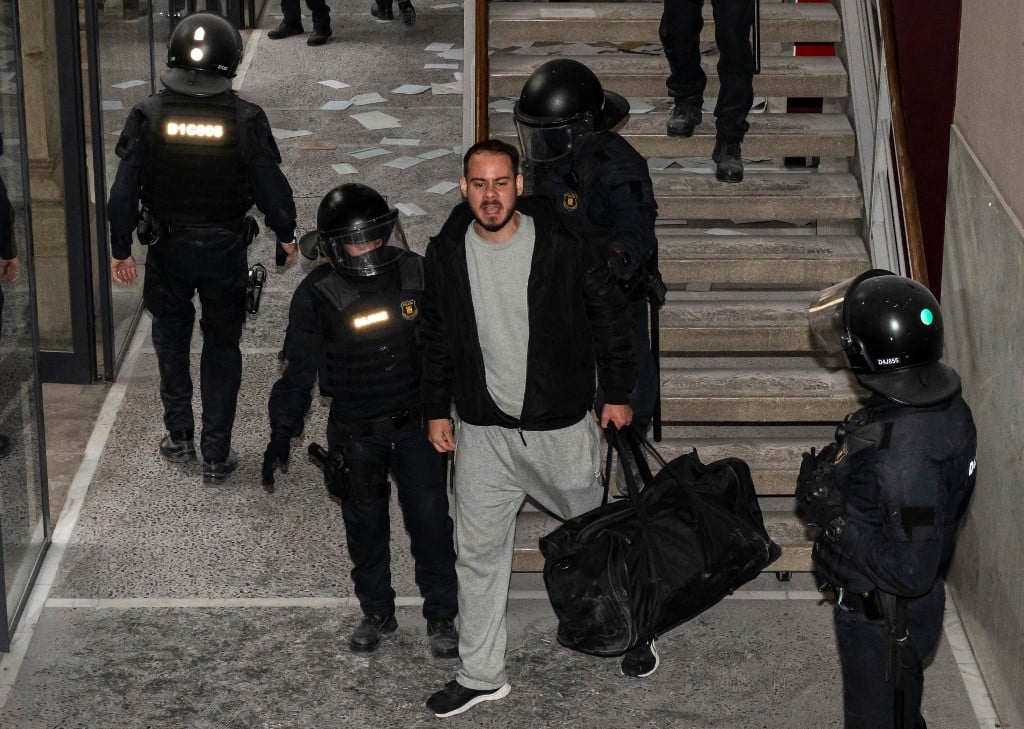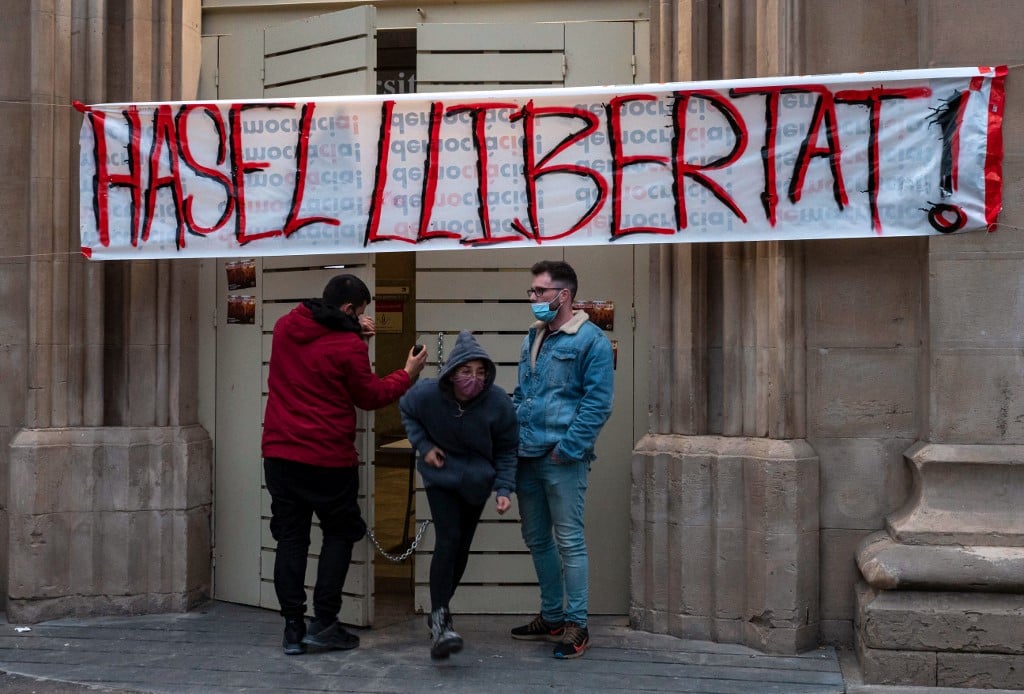Although Spain has risen up the rankings of RSF’s World Press Freedom Index 2017 to 29th place, improving its position by five points, this is due to a worsening of freedoms in other nations rather than an improvement in Spain itself.
The Citizen Security Protection Law, usually referred to as the “Gag Law” because of its restrictive impact of freedom of expression and information, began affecting the work of journalists in 2016, recognised the report.
READ MORE: The ten most repressive points of Spain’s ‘gag law’
The report highlighted that “at least six journalists have been fined for allegedly obstructing the police or for photographing them.”
Adopted in 2015, when the ruling Popular Party still had absolute majority in parliament, “the Gag Law’s repeal has been demanded by all opposition parties, which also accuse the government of exercising an outrageous level of control over the news program of the state radio and TV broadcaster, RTVE,” the report, published on Wednesday, said.
The report also warned that Spain had followed a global trend that has seen journalism “lose its prestige”.
“The high unemployment rate accompanying the economic crisis in Spain in recent years has had an unprecedented impact on employment within the media. Underpaid or even unpaid freelancers are now widely used within journalism, which has lost its prestige.”
ANALYSIS: “Spain's freedom of speech repression is no joke”.





 Please whitelist us to continue reading.
Please whitelist us to continue reading.